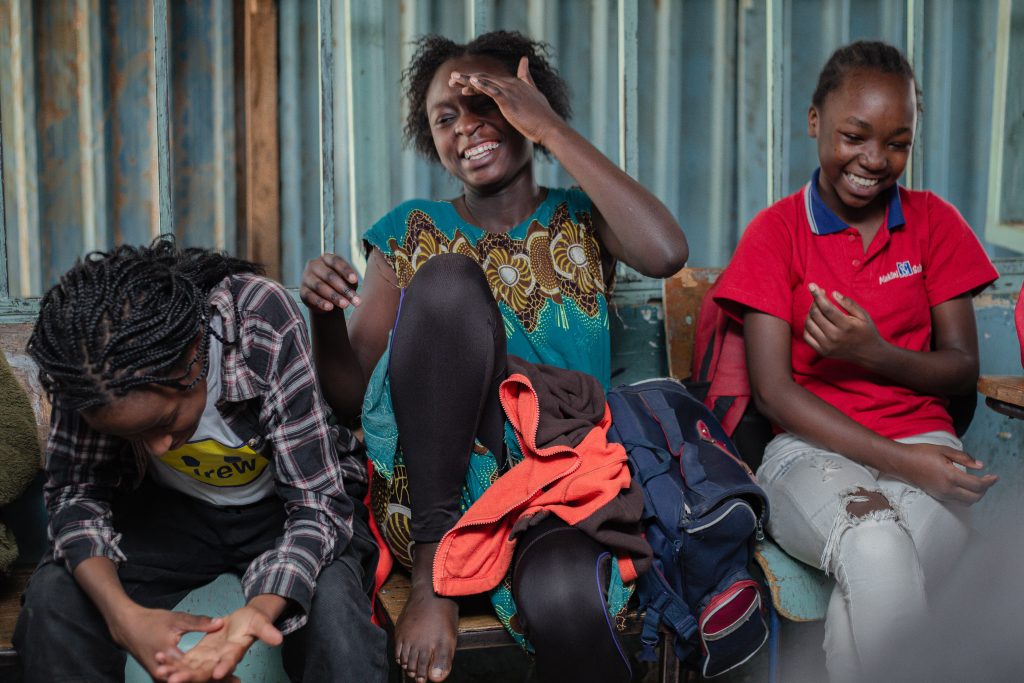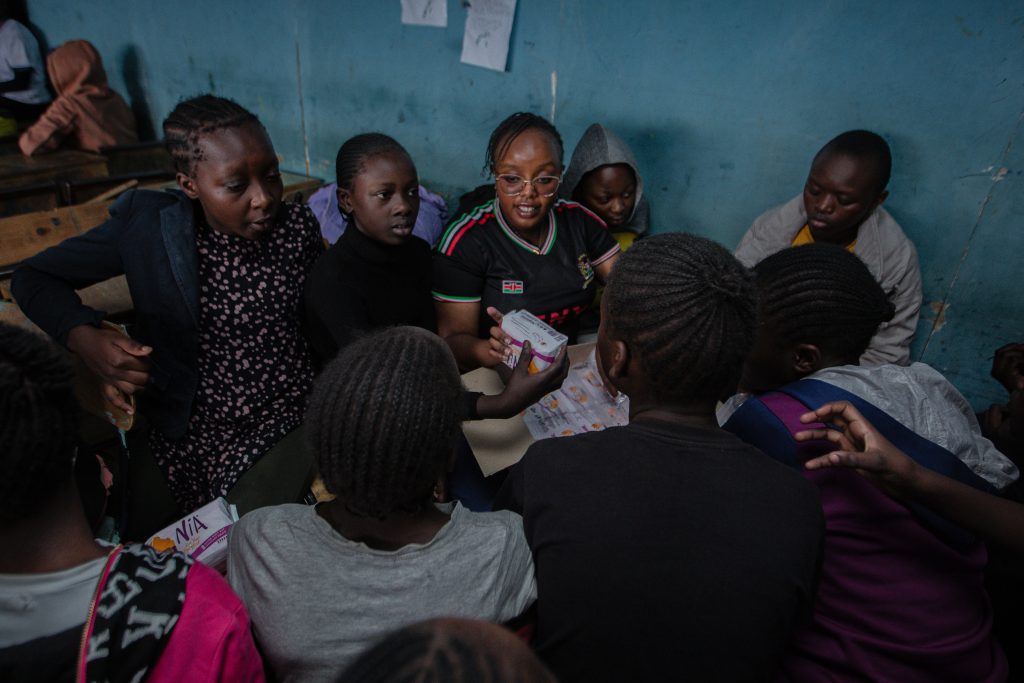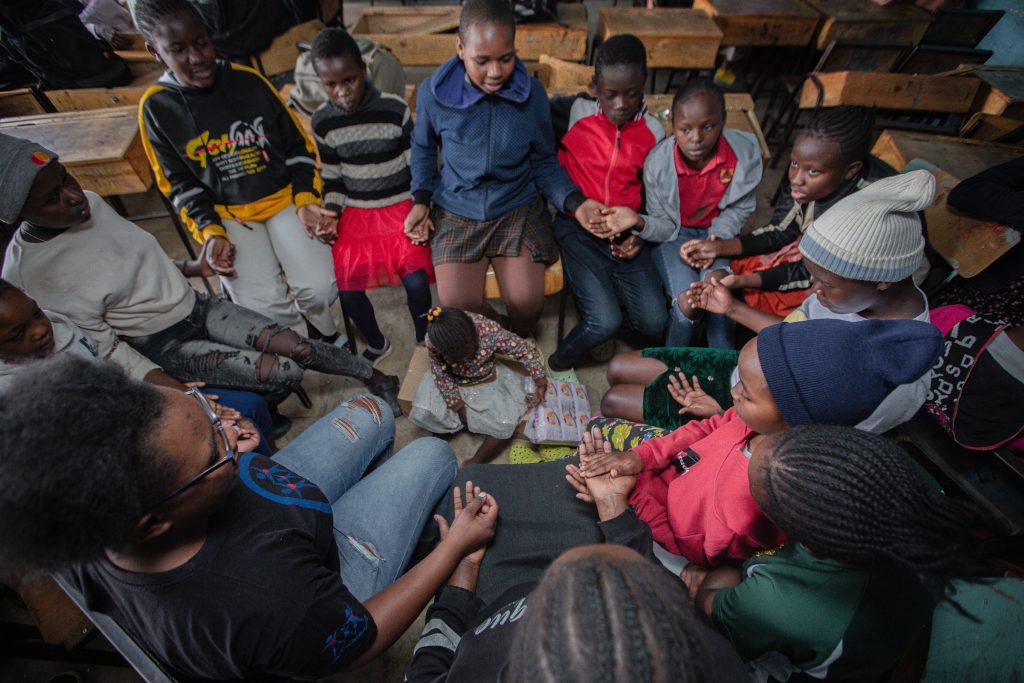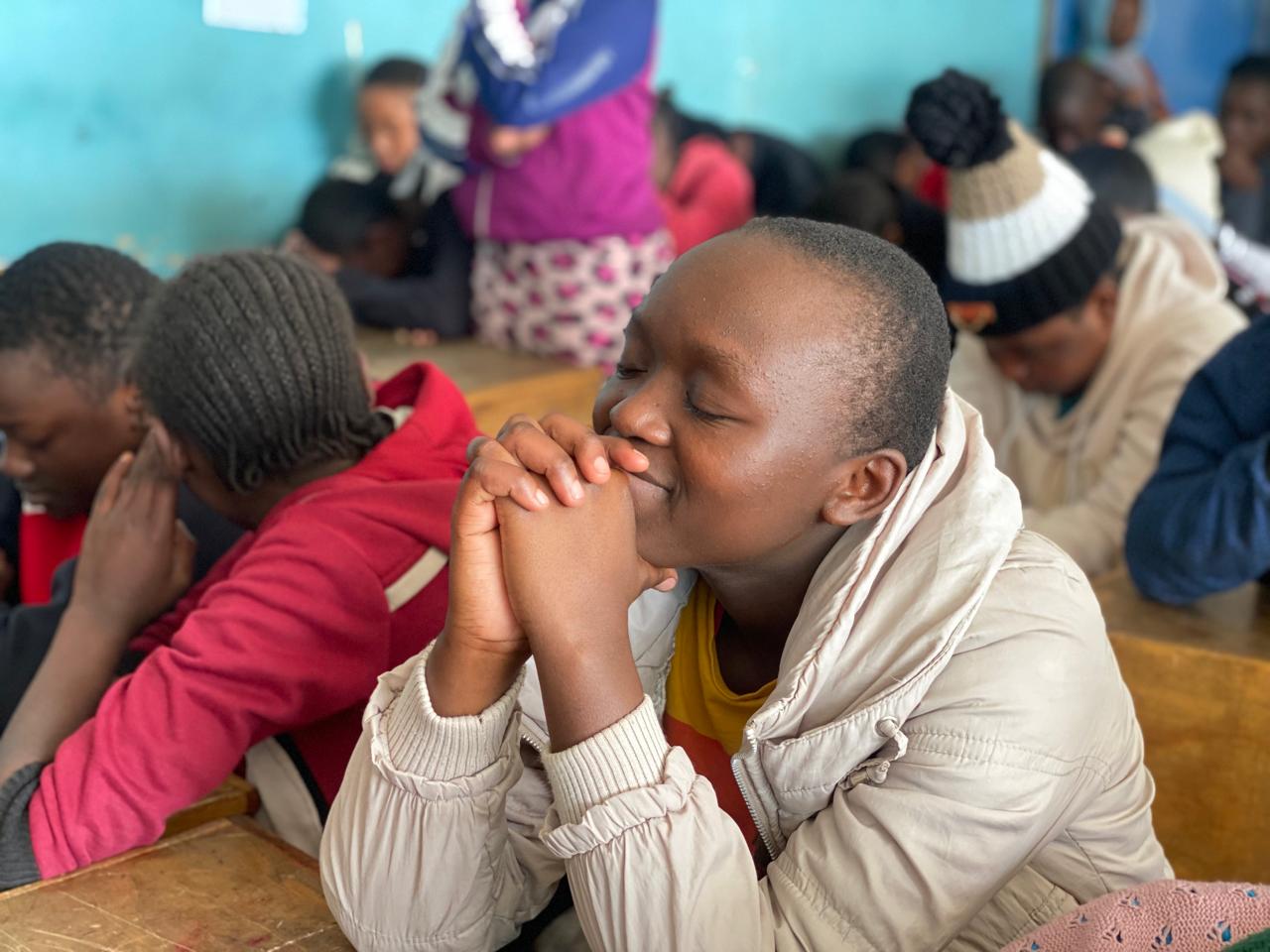GIRLS FELLOWSHIPS

In many slums across Kenya, a spiritual drought exists that runs as deep as the physical poverty surrounding it. Girls grow up in environments where hope feels like a distant dream, and faith a burden too heavy to carry. For many of these young girls, the idea of being born again or choosing to live a spiritually pure life feels unnecessary, even laughable. Surrounded by hardship, they look for comfort in the wrong places. They become engrossed in worldly matters, influenced by what they observe around them, and over time, they grow hardened and rebellious, not only to their parents and teachers, but also to the very communities that are trying to guide them.
When Desh Care began its work, we were focused purely on the physical side of period poverty, providing reusable sanitary pads and teaching menstrual hygiene. We saw it as a practical need, and it was. But as we spent more time with these girls, we started to notice something deeper, something broken. We would caution them against engaging in criminal behavior or trading sex for pads. We would discuss dignity and safety with them. But many didn’t listen. Their eyes were empty. Their hearts had already grown cold from disappointment, abuse, and silence.
Many girls begin to believe something is spiritually wrong with them simply for being female. They avoid prayer. They skip church. Not because God is distant, but because society has made them feel that He should be. Biblical truth is absent. Too many of these girls have never heard that they are fearfully and wonderfully made, that their cycles are not a curse but a sign of life, or that God created their bodies with beauty, purpose, and divine intent. Without that foundation, shame takes root—and it follows them into adulthood.
In this spiritual confusion, lies creep in: “You are dirty.” “You are less than a boy.” “You are only valuable if you give something in return.” These lies open doors to dangerous choices—trading sex for pads, falling into the arms of predators, seeking validation in unsafe places—not because they want to, but because no one told them they were worth more.
OUR RESPONSE


Desh Care decided to take a bold, holistic step: addressing not only the physical challenges of period poverty but also the spiritual and emotional gaps in the lives of the girls they serve. It became painfully clear that these girls weren’t just lacking products; they were lacking purpose. Their spiritual foundation had been shattered, or perhaps never laid to begin with. So, Desh Care began introducing them to Jesus not through fear, but through love. They opened the Bible with them, spoke truth into their lives, and slowly, the light began to flicker in their eyes.
Through Fellowships, they created safe spaces where girls could talk openly, not just about periods, but about pain. They taught the Word of God not as a rulebook, but as a love letter. They helped girls see their bodies as holy, not shameful. They showed that menstruation is part of God’s design, not a punishment. They introduced them to a discipleship journey that grounds them in Christ and connected them to spiritual mentors, where support continues through fellowship, prayer, and mentorship.
The transformation has been powerful. Girls who once hid now speak boldly. Those who once skipped school during their periods now mentor others. They stand taller. They smile more. They know they are not dirty, forgotten, or cursed. They are God’s masterpiece made with care, on purpose, and for a purpose.
Desh Care believes healing must happen in the whole girl’s body, mind, and spirit. Because when a girl truly sees herself through God’s eyes, she no longer walks in shame. She walks in purpose.


